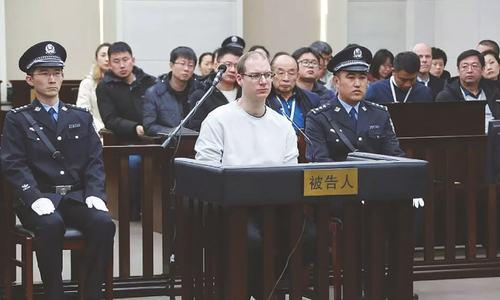Australia on Thursday demanded China handle the case of detained author Yang Hengjun “transparently and fairly,” amid a growing row about the fate of the Chinese-Australian.
Yang — a novelist, democracy advocate and former Chinese diplomat — was detained shortly after he made a rare return to China from the United States (US) last week.
Friend and colleague Chongyi Feng told AFP he believes Yang is being charged with “espionage” although a Chinese official at a press briefing on Thursday said that the Chinese-Australian detained in China was suspected of engaging in “criminal activities that endanger China's national security”. Yang Hengjun was detained by Beijing state security, ministry spokeswoman Hua Chunying added.
Australian Foreign Minister Marise Payne said diplomats and Chinese officials met in Beijing on Thursday to discuss the matter and that Australia was seeking “further clarification” as to why Yang was detained.
“We will continue to make representations to China to make sure this is dealt with transparently and fairly,” she said.
Once described as China's “most influential political blogger”, Yang became an Australian citizen in 2000, but is currently based at New York's Columbia University.
His criticism of the Chinese government and support for democracy has in the past made him a target of Beijing's state security apparatus. He went missing during a 2011 trip to China, but resurfaced days later, describing his disappearance as a “misunderstanding”.
But his current detention comes at a moment of heightened tension between Western countries and an increasingly muscular Beijing, prompting fears that he may be the victim of a dragnet by Chinese security services targeting foreigners.
Strained relations
Payne said there was “no evidence” Yang's arrest was part of that trend “at this stage”, adding, “I'd be concerned if there was an indication of that.”
Canada's recent arrest of a senior executive of Chinese telecom giant Huawei at Vancouver airport has been followed by the high profile arrests in China of two Canadians.
“It only heightens the feeling that visiting China is unsafe and that the security services may increasingly be going after people for what they say outside of China,” said longtime China-watcher Bill Bishop.
Relations between China and Australia have likewise been strained by Canberra's decision to ban Huawei from participating in its 5G wireless network over security fears and as the two countries have vied more openly for influence in the Pacific.
Australian Defence Minister Christopher Pyne, on an official visit to Beijing, told reporters he would be raising the issue with his Chinese counterpart later on Thursday.
Yang had worked in the ministry of foreign affairs in Hainan province, but later left for Hong Kong in 1992, before writing a series of politically tinged spy novels. He became an Australian in 2000.
Yang's friends first raised concerns when the 53-year-old failed to make a connecting flight from Guangzhou to Shanghai on January 19. Australian media reported he had been travelling with family members, including his wife, who has since posted a cryptic and emotional message on her Weibo page from Beijing.
In Australia there is mounting anger that China failed to quickly notify the authorities of his detention and fears that an already difficult relationship may be further damaged.
“You can't sugar-coat this, this is an Australian citizen, who has been detained in China” said Australian opposition leader Bill Shorten.
“It is very concerning, I can't pretend otherwise” he added, criticising the slow response from the Chinese authorities. “This is not the way relations between our two countries should be conducted, at all.”
Former Australian prime minister and China expert Kevin Rudd turned to Twitter to insist that Yang is an Australian citizen “just like the rest of us with equal rights and protections”.
Under a 2000 consular agreement between the two countries, China was obliged to notify Australia of Yang's detention within three days and allow consular visits, unless the detainee waives that right.
Pyne said Beijing took four days to notify Canberra.
The issue may be further complicated by China's refusal to recognise dual nationality and allegations of Chinese “hostage diplomacy”.
Writers' advocacy group PEN accused China of overt repression: "It's obvious that Yang would not have been seized if it weren't for his previous critical writings."















































